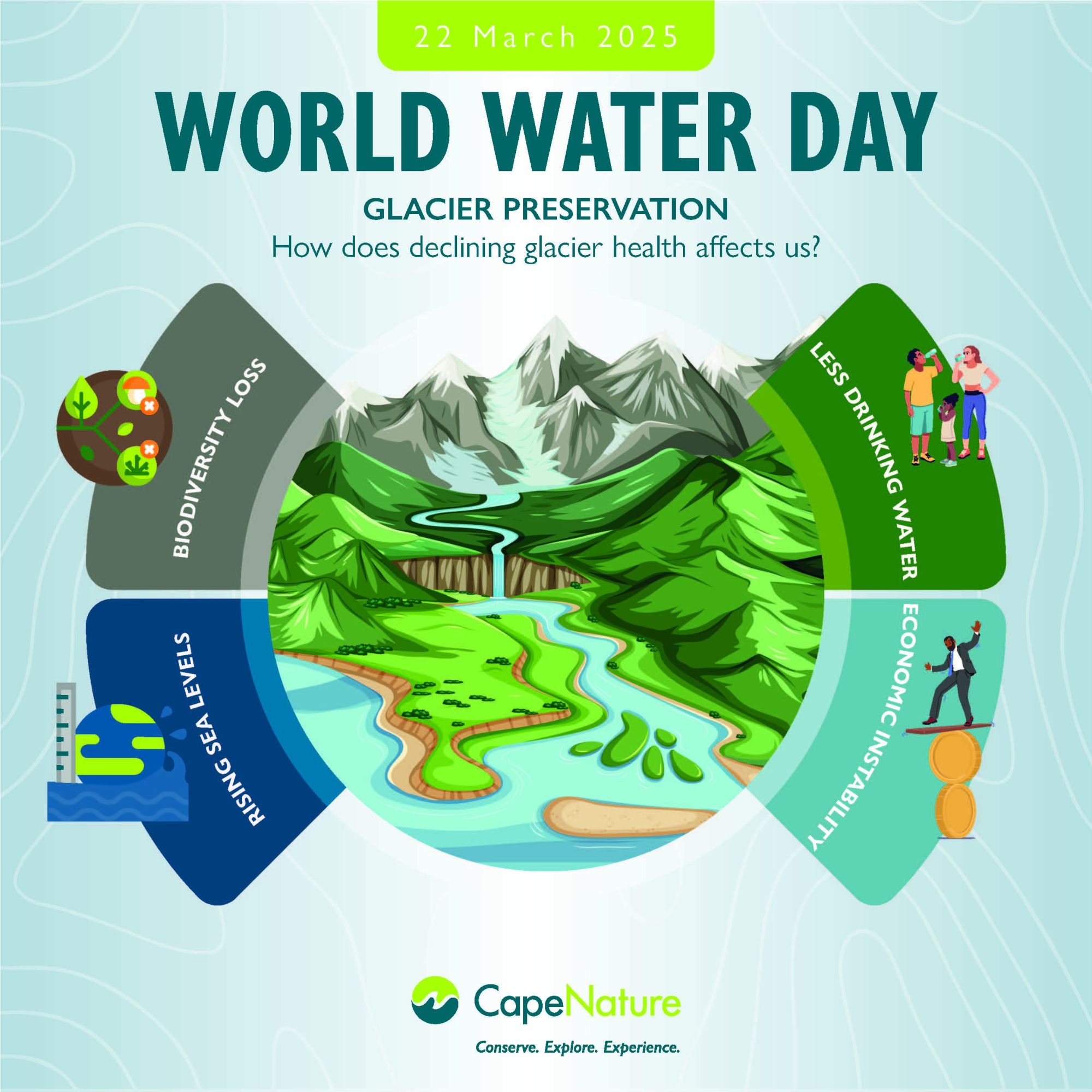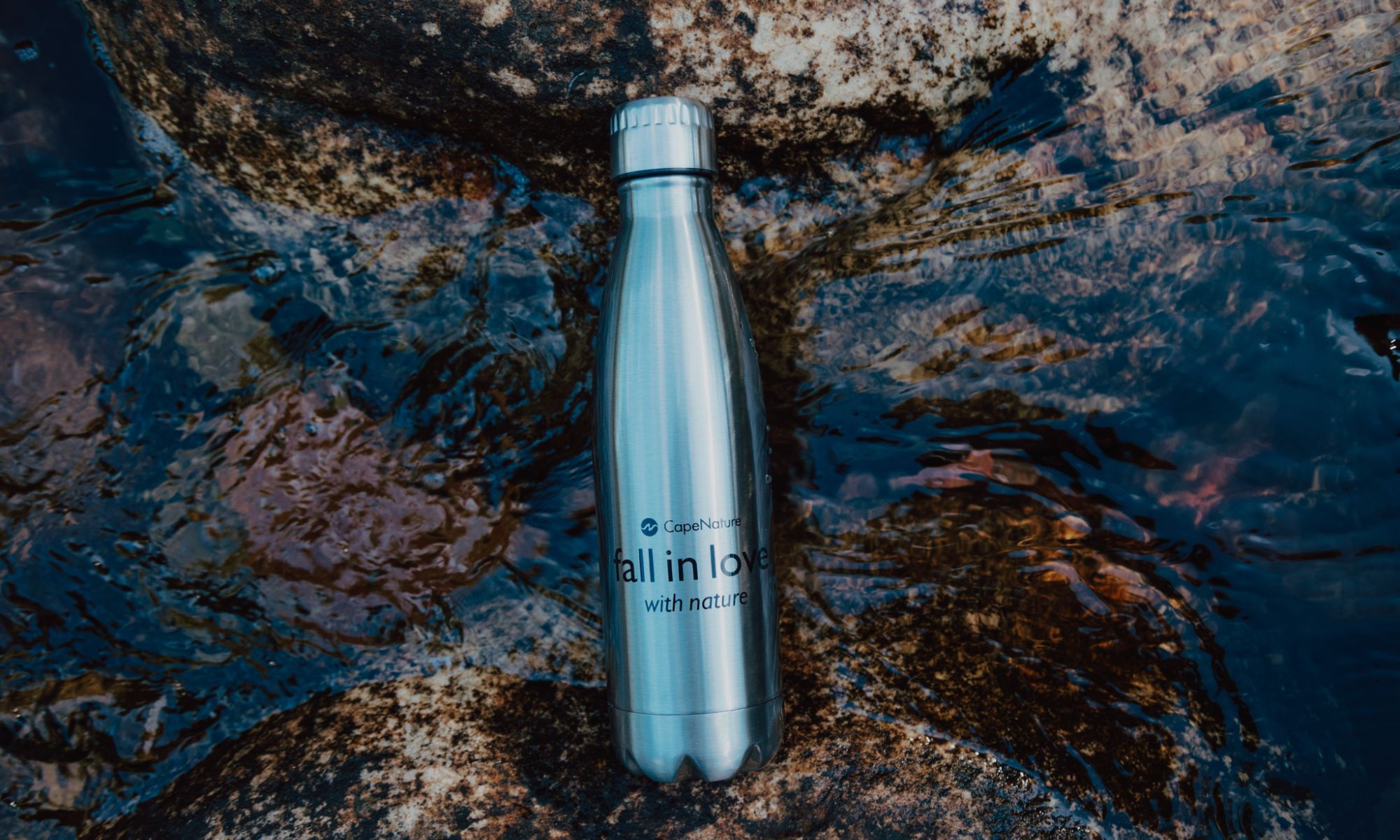
Water is the lifeline that sustains us all and our future
The 2025 theme for the annual United Nations World Water Day is “Glacier Preservation”. These unique and very sensitive ecosystems, holding vast volumes of global freshwater have started to melt at alarming rates due to global warming. This has resulted in the area permanently covered by ice decreasing and exposing once hidden ecosystems but unfortunately also impacting on the migration routes and hunting areas of many associated species.
While South Africa does not possess any areas permanently covered in ice or snow, there are high-altitude areas within the Western Cape and other provinces which do experience winter snowfalls. The same global warming resulting in glacial melts could also reduce the area covered in winter snow and ice in South Africa. How will this impact us? Well, other than less opportunity to play in the snow, the summer melt results in critical freshwater flowing down the associated rivers in the Western Cape into the ocean. This critical catchment-to-coast connectivity ensures the survival of aquatic ecosystems and provides freshwater for human use. Less winter snow will mean less summer melt and less freshwater available. With climatic changes resulting in hotter and dryer summers linked to El Nino, the volume of snow melt will become critical in the years to come.
While we do not have glaciers in South Africa, it is nevertheless critical to create awareness of the threats to all glaciers and vital winter snowfalls. While the melting glaciers will result in additional water entering the global oceans, impacting these ecosystems, the reduction of snowfall will negatively impact the volume of snow melt provided to ecosystems and people in the future.
Snow melt is important for the provision of lots of clean water for downstream use, including what is also needed to sustain terrestrial, freshwater and estuarine ecosystems. Snowmelt is also of relevance in the mountainous areas of the Western Cape, mostly during the cold and wet winter months, where it contributes additional, slower-released water to mountain run-off into the freshwater ecosystems. These water sources, therefore, provide a valuable and much-needed ecosystem service for human use and for biodiversity conservation.
Awareness campaigns like World Water Day and the Department of Water and Sanitation’s National Water Week (20-26 March 2025) and Water Month (March 2025) campaigns not only aim to raise awareness of freshwater ecosystems and their importance but also how to safeguard these systems for a sustained supply of water, with the long-term goal of ensuring sustainable access to safe water for all by 2030. The conservation and sustainable management of our freshwater ecosystems is key to our survival.
Freshwater ecosystems are exposed to many threats, including physical, chemical and microbiological pollution. Just think about plastic pollution and how small particles have made their way into all ecosystems and even our own bloodstream. Over-abstraction of water is another major threat to water security and added to this are the effects of climate change, including the impacts of droughts and flood events. In the Western Cape, we have been exposed to more than one natural disaster in the last decade alone. The availability of water is also impacted by the widespread presence of invasive alien tree species, including pine trees and several species of acacias, which have been proven to use more water than indigenous Fynbos plants.
The pressure on freshwater ecosystems can be alleviated by wise water use at home, at work and in agricultural landscapes. These activities include shorter shower times, closing the tap while you brush your teeth, watering gardens early in the morning or the evening, three times a week or less, cultivating a water-wise garden – by installing rainwater tanks and reusing water for non-potable purposes like watering the garden.
Freshwater ecosystems and their catchments are vitally important to our delicate environment. Remember, if you look after ecosystems, the ecosystems will look after you!






